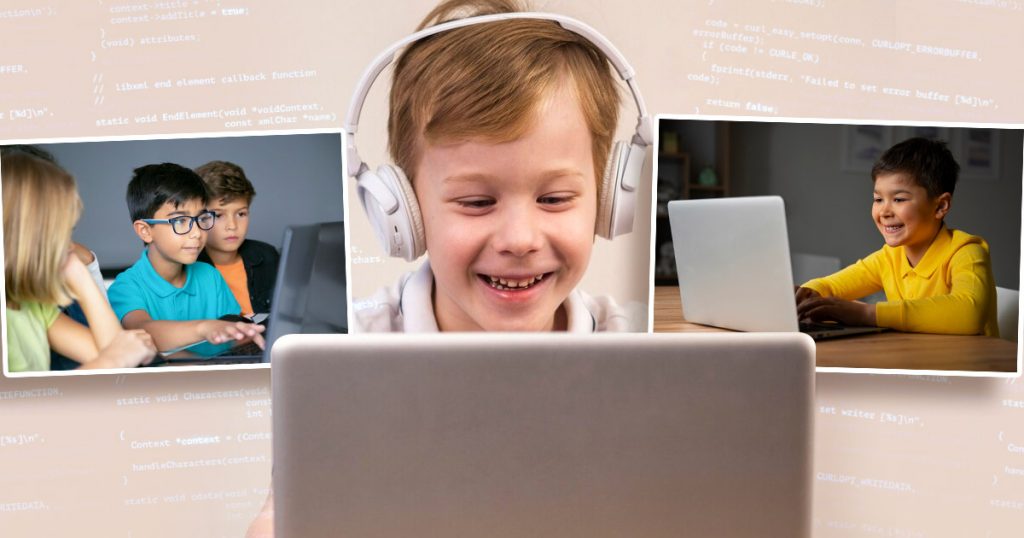Many kids use technology every day, but only a few know how it actually works. Coding teaches them how to go beyond just using devices. It shows them how to create with them. Even if your child doesn’t dream of building video games or being a tech expert, coding is still a fun and rewarding skill to learn.
Helping your child get started with coding doesn’t require a tech background. With the right approach and tools, even beginners can guide their kids through the basics of programming. Here’s a friendly guide using real-world tips and examples.
How to Inspire Kids to Learn Coding Skills
Children learn best when new concepts connect to what they already enjoy. That’s why sparking interest in coding starts with their world.
Use Simple Language They Understand
When learning how to explain coding to a child, skip the technical terms. Try saying, “Coding is like giving instructions to a robot so it knows what to do.” Mention how games, apps, and videos respond because someone told them how using code.
Link Coding to Their Interests
If your child loves watching YouTube, playing video games, or using fun apps, use that to your advantage. Let them know people coded those things. With time and creativity, they can build something just like it.
Even kids who enjoy art, science, or numbers can use coding to explore their ideas. They might create animations, games, stories, or calculators that reflect their interests. Making something personal helps the lessons stick and makes learning more fun.
Why Kids Should Start Learning to Code Now
Starting young gives kids a head start in an increasingly digital world. They don’t just learn to use technology, they learn to shape it.
It Builds Valuable Skills
Coding strengthens logic, concentration, and problem-solving. When kids write code, they must think through each step. If something breaks, they practice debugging. This builds perseverance and attention to detail.
Coding also boosts confidence. Kids set small goals, like making a character move or a robot spin. Achieving those goals helps them believe they can do more.
It Opens Doors in the Future
Even if your child doesn’t become a programmer, coding still helps them stand out. High school students with coding experience can shine in college applications. They also become more prepared for careers in tech, science, or design.
Fields like biology, art, and business now rely on coding too. A future biologist might analyze data using code. An artist might create interactive designs. Coding supports all of these paths.
Learning Tips to Help Your Child Start Coding
Children pick up coding faster when they feel supported and curious. These steps can help you set up a fun and stress-free learning experience.
Pick One Language to Begin With
Scratch works well for most kids. As they grow, they can explore languages like Python or JavaScript. Stick with one at the start so it feels manageable.
Find Learning Resources That Match Their Style
Some kids love watching tutorials. Others prefer hands-on coding games or reading books. Try different options and let your child pick what feels right.
You can also use online courses designed for children. These often include projects, videos, and quizzes to keep them engaged.
Introduce Core Coding Terms Early
A few terms are worth teaching upfront:
- Algorithm: A list of steps that solves a problem.
- Sequence: Instructions in a specific order.
- Loop: Repeating steps until a condition is met.
- Branching: Making choices based on conditions.
- Decomposition: Breaking problems into smaller parts.
These terms help kids understand how to think like a programmer, even before they write real code.
Show Off Real Examples
Explore how websites, apps, or robots work behind the scenes. Look at the sample code or watch how other kids build projects. This makes coding feel more real and exciting.
Where Curiosity Meets Creation
Kids today grow up surrounded by smart devices and digital tools. Teaching them how those things work gives them a real advantage. Coding lets them move from being passive users to curious creators. What excites me most is how coding helps kids think for themselves. It teaches them that problems can be solved step by step, not all at once.
Even if they don’t become programmers, the way they learn to approach challenges will stay with them. That mindset matters in every part of life.
